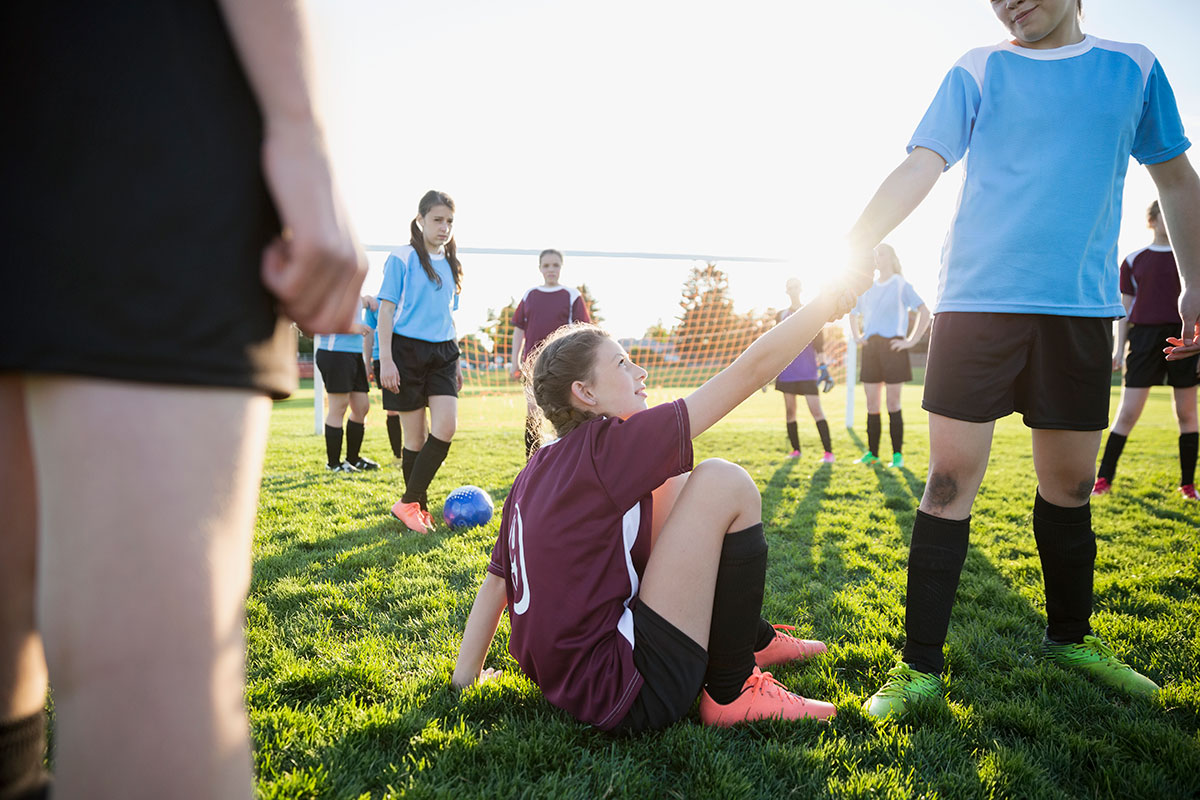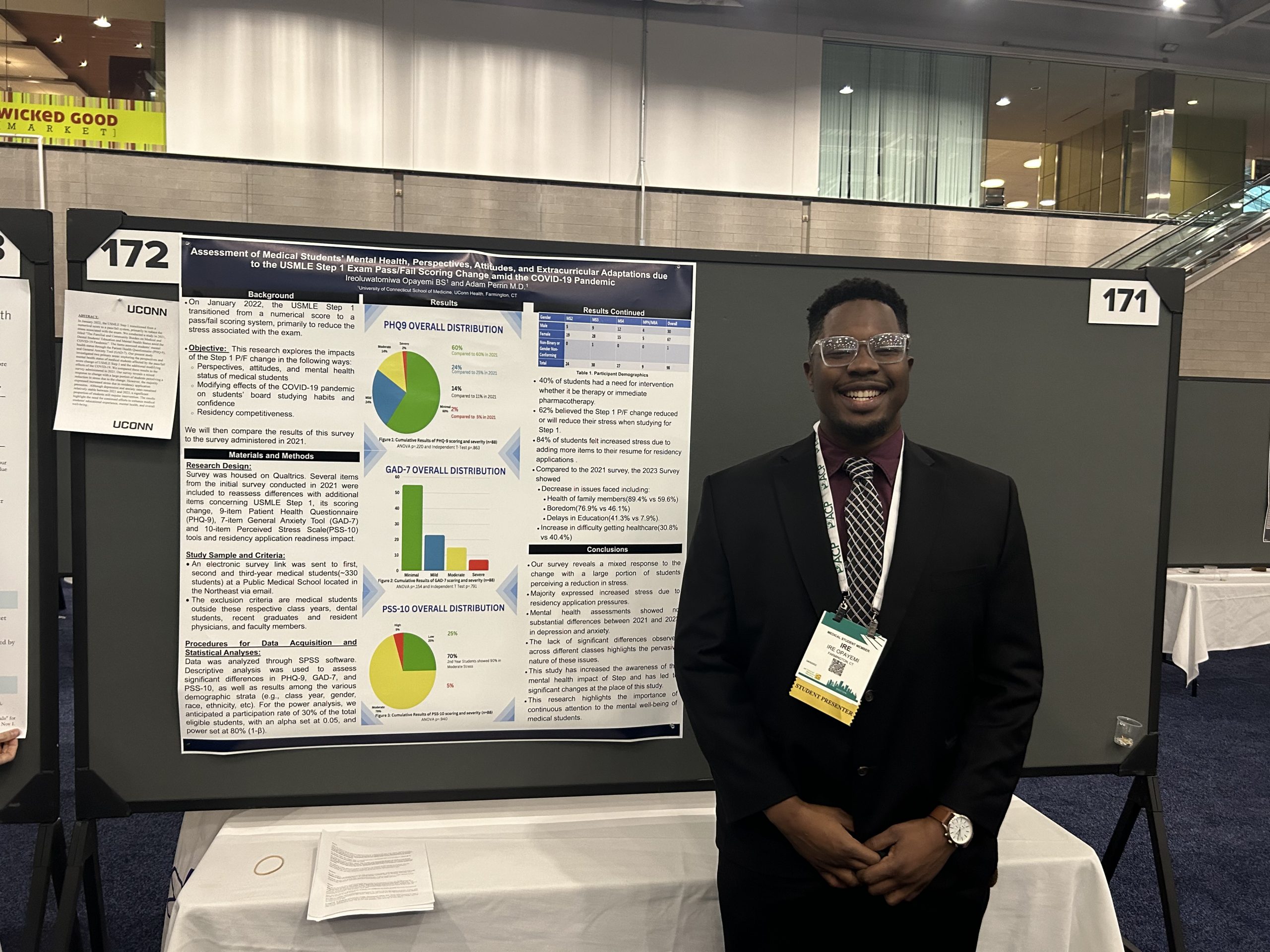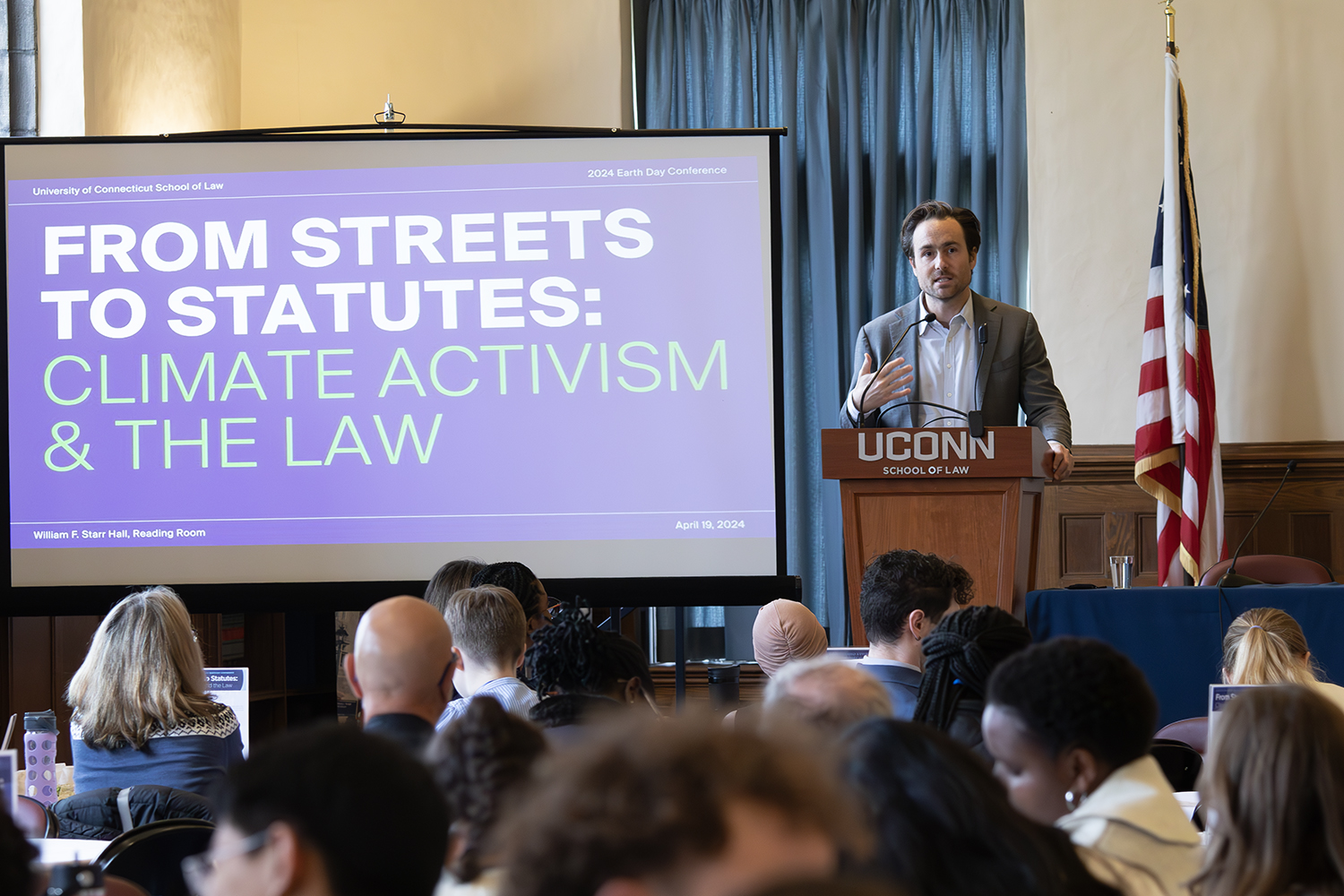When youth athletes, parents and coaches have their focus in the right places, our kids are the winners, even when the scoreboard says otherwise.
Exercise comes with its own set of physical and mental benefits, but organized youth sports adds developmental and educational benefits, such as drawing lessons from failure and being part of something bigger than themselves.

“Participation in team sports involves learning how to win, and how to lose, and the latter helps develop a youth’s resiliency and self-esteem, particularly when they work with an understanding and supportive coach to help foster those attributes,” says Dr. Timothy Lishnak, UConn Health family medicine physician. “They have the opportunity to learn skills that will be with them for the rest of their life. Those skills include how to function within a team, what it means to be a team member, and an introduction to the rules of the game. These can be extrapolated to how to be a member of society, to get along with others, to engage in the ‘rules’ of society, essentially social skills.”
If the emphasis is on promoting activity in a fun and supportive environment, there’s little downside to participating in youth sports.
“They are also developing wellness behaviors that will hopefully set a foundation for lifelong health habits,” Lishnak says. “And the development of lifelong habits in physical activity should mirror the development of healthy eating habits. You need to fuel your body with nutritious food to effect performance and minimize injury.”
Minimizing injury also is a byproduct of a young athlete developing an ability to recognize physical limitations.
“Learning how to listen to your body is an important skill that athletes need to develop,” Lishnak says. “Ignoring warnings signs will increase the risk of injury, that fine line between discomfort and pain. It’s always important to start off slowly and then advance; this helps the body develop strength and endurance that will support activity and decrease injury.”
The most common types of injuries Lishnak sees are lower extremity injuries such as ankle sprains. Awareness of concussions and their repercussions has led to a greater focus among physicians, trainers, coaches and parents on preventing, recognizing, and treating head injuries.
Most avoidable are overuse injuries, which are more prevalent in athletes who don’t allow themselves to have an off-season. Someone who plays only baseball year-round is more prone to shoulder stress from repeated throwing than someone who takes a few months off or who switches to other sports.

“Adolescents are more susceptible to overuse injuries because their bodies are still developing,” says Dr. Kathrine Coyner, UConn Health orthopedic surgeon and a team physician for UConn athletics.
Coyner offers the following guidelines to help young athletes avoid overuse injuries:
- Age vs. Hours: A 9-year-old shouldn’t be spending more than nine hours a week at soccer practice.
- Take Breaks: At least one or two days off each week, and longer breaks throughout the year.
- Communicate Discomfort: Children should know the importance of telling parents and coaches about pain or discomfort right away.
- Pay Attention: Parents should keep a close eye on their children so they can recognize when something’s not right.
- Cross-train: A variety of sports and exercises will give some muscle groups a much-needed rest while developing others, with the added benefit of improving athleticism and agility.
While competition for athletic scholarships and the proliferation of travel teams and elite high school leagues may have given rise to more one-sport specialists, Lishnak, who fellowship trained in sports medicine, warns parents to remember the “student” in “student athlete.”
“First off, they can’t forget the academics,” he says. “In my opinion, school work should come first. That is what is going to be with you for the rest of your life. Another consideration is making sure this is driven by the child and not the parents. Participation at an elite level is something the child has to want to do and be committed to, as it does involve time, effort, and sacrifice.”
And sometimes it can be hard to remember, they’re just kids, and it’s only a game. Losing sight of that can defeat the purpose and minimize the benefits of participating in youth sports.
“If there is too much of a focus on the outcomes then a certain pressure is added to the mix to perform rather than to enjoy participating,” Lishnak says.
The National Council of Youth Sports observes National Youth Sports Week July 15-21.
Learn more about family medicine at UConn Health, or call 860-679-4477 for an appointment.
Learn more about sports medicine at UConn Health, or call 860-679-6600 for an appointment.



